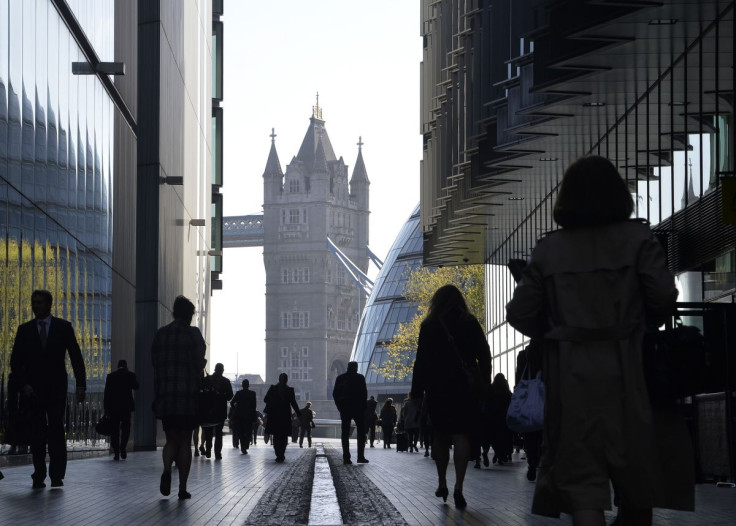UK Jobless Rate Lowest Since 2019, But Inflation Eats Into Pay

Britons' earnings shrank by the most since 2013 in February when adjusted for surging inflation, despite unemployment falling to its joint lowest in almost 50 years, highlighting the challenges facing the Bank of England.
The jobless rate sank to 3.8% in the three months to February from 3.9% before, official figures showed, matching a rate last seen in late 2019 and one that has not been lower since 1974.
Annual growth in average earnings excluding bonuses picked up to 4.0% from 3.8% but fell short of rising inflation - which hit 6.2% in February - and led to a 1.3% drop in its real value, the Office for National Statistics (ONS) said.
"Soaring inflation is casting a big shadow over an otherwise buoyant labour market," Nye Cominetti, an economist at the Resolution Foundation think tank, said.
Compared with before the pandemic, British employers are struggling to hire and job vacancies rose to a record high of 1.288 million in the first quarter of 2022.
The tight labour market is making many Bank of England (BoE) policymakers fear that Britain's currently high inflation - pushed up by energy prices and post-pandemic supply-chain difficulties - could become entrenched.
The BoE has raised interest rates three times since December, more than any other big central bank, and markets expect it do so again at its next meeting in May.
But the BoE also fears growth will slow sharply this year as the squeeze on living standards intensifies.
Government budget forecasters predict inflation will peak at nearly 9% at the end of the year, and that living standards are set to see their biggest fall since records began in the late 1950s once the effect of April's payroll tax rises are included.
Figures due on Wednesday are expected to show consumer prices rose by 6.7% in the 12 months to March.
SLOWER EMPLOYMENT GROWTH
Tuesday's data showed employment growth was slowing, possibly as a result of firms' concerns about the outlook for demand as well as the difficulty in securing staff.
Employment in the three months to February rose by 10,000, far less than the 50,000 forecast in a Reuters poll of economists.
The number of job vacancies rose by the smallest amount in nearly a year, while a separate tax office measure of the number of employees on company payrolls rose by 35,000 in March - a lot fewer than February's downwardly revised reading of 174,000.
Also on Tuesday, British retailers reported weaker annual sales growth for March, reflecting growing pressure on consumer spending as well as the timing of Easter.
Reduced immigration from the European Union since post-Brexit restrictions came into force in January 2021 has also increased hiring difficulties for some employers.
Overall, the number of people in Britain's workforce has fallen by 655,000 since the start of the pandemic - due to a rise in long-term sickness to its joint-highest rate in 20 years, as well as early retirement.
"The jury's out on exactly why this is - or indeed how long it might last - but in the meantime it's adding to labour shortages," James Smith, an economist at Dutch bank ING, said.
© Copyright Thomson Reuters 2024. All rights reserved.





















